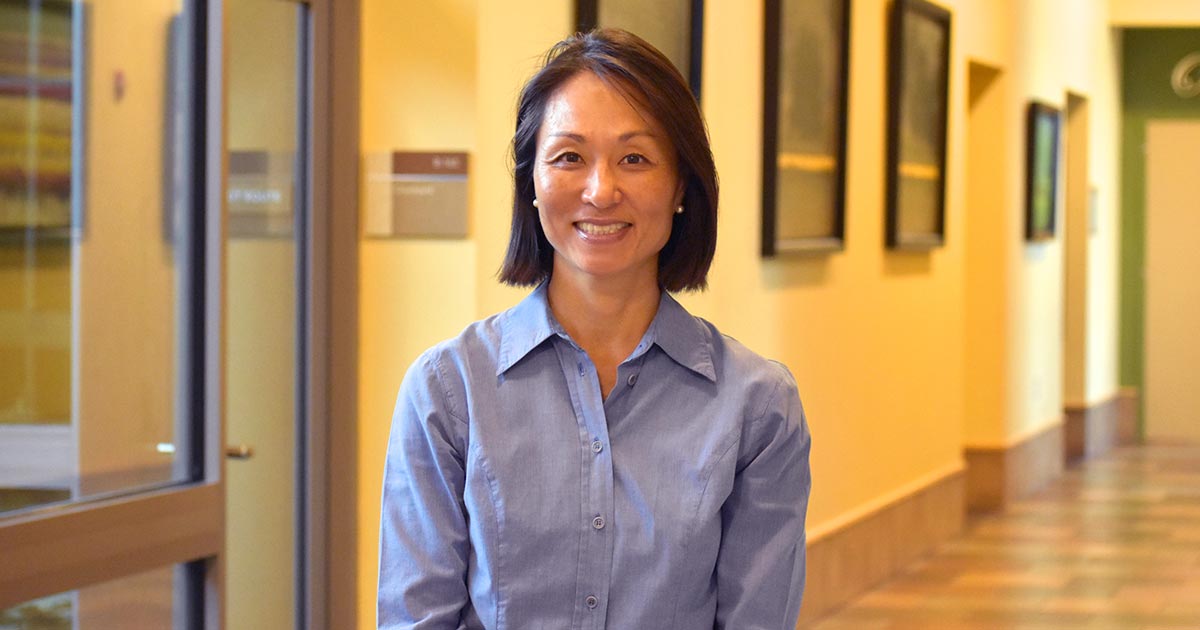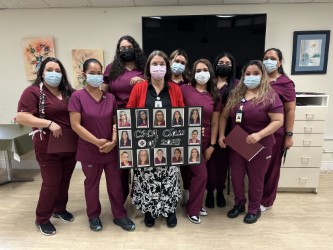Dr. Song - Making a Community Impact
- Category: Provider Spotlight, ENT
- Posted On:
- Written By: Nora Wallace

As she’s started to meet more Lompoc Health patients, Dr. Angie Song has been pleasantly surprised by the “really sweet” patients she’s seen.
As one of Lompoc Health’s new otolaryngologists, or Ear, Nose and Throat physicians, Dr. Song is a recent transplant from the Seattle area, along with her husband, Dr. Richard Rooney, a Lompoc Health orthopedic surgeon.
“The patients seem to be in such good physical shape,” she says, nothing that patients in their mid-60s seem more than a decade younger.
“People here are genuinely good people,” she observed. “They’re not living in some big city. They’re not trying to pretend to be something they’re not. It’s ‘Oh, I live in Lompoc and it’s great.’”
Dr. Song has a fair amount of experience living in different locales. She was born in South Korea, and her family immigrated to the U.S. when she was 5 years old, in 1973. Her father worked as a mechanic on Navy ships, and the family settled in Maryland. Her father enlisted in the U.S. Army and the family then moved to Germany, and then Tacoma, Washington.
Though most of her family are entrepreneurial rather than in the medical field, she had a deep interest in science and considered a research career. She ultimately learned she liked more human interaction and turned to medicine. She earned her medical degree from George Washington University School of Medicine and Health Sciences.
“I always felt the head and neck area was the most interesting and challenging as far as anatomy,” she says of her specialty. “There are lots of crevices. It’s not as straight forward as opening up a belly. It’s very individualized by person. The face and the contours are a little bit different. Our face is what we present. I remember being told by a plastic surgeon that it doesn’t matter how old a person is, they still want to look good.”
To help with medical school tuition, Dr. Song joined the U.S. Army, where she eventually met her husband. They’ve been married 21 years and have two teenage sons, ages 17 and 14.
“Being in the military is sort of a community within a community,” says the now retired Army Major. “When you’re a young physician or surgeon, it’s nice to have that cohesive entity that you work for. No matter when you get transferred around, you’re familiar with the system and there’s a certain patient population. You learn early on the way to treat a patient for their own good, vs. being monetarily motivated.”
Many civilian new physicians have the stress of trying to pay off school loans and pay for overhead at medical practices.
“When you don’t have all those stressors, and you’re able to just practice medicine, you really just practice pure medicine,” she says. “And I feel that my values and morals about being a physician is all from that – the early on experiences I had straight out of residency.”
Since she’s been in Lompoc, Dr. Song has seen patients for ailments such as dizziness, sinus problems, nasal congestion, voice changes and more. She has appreciates being in a smaller community.
“You come to a point in life where all the lights and glitz of the big city wears you out,” she admits. “You want to do something you’re passionate about, where you can make a community impact, to do well and do good for the community and serve the patient. We both felt that this community would be a great place to be.”





